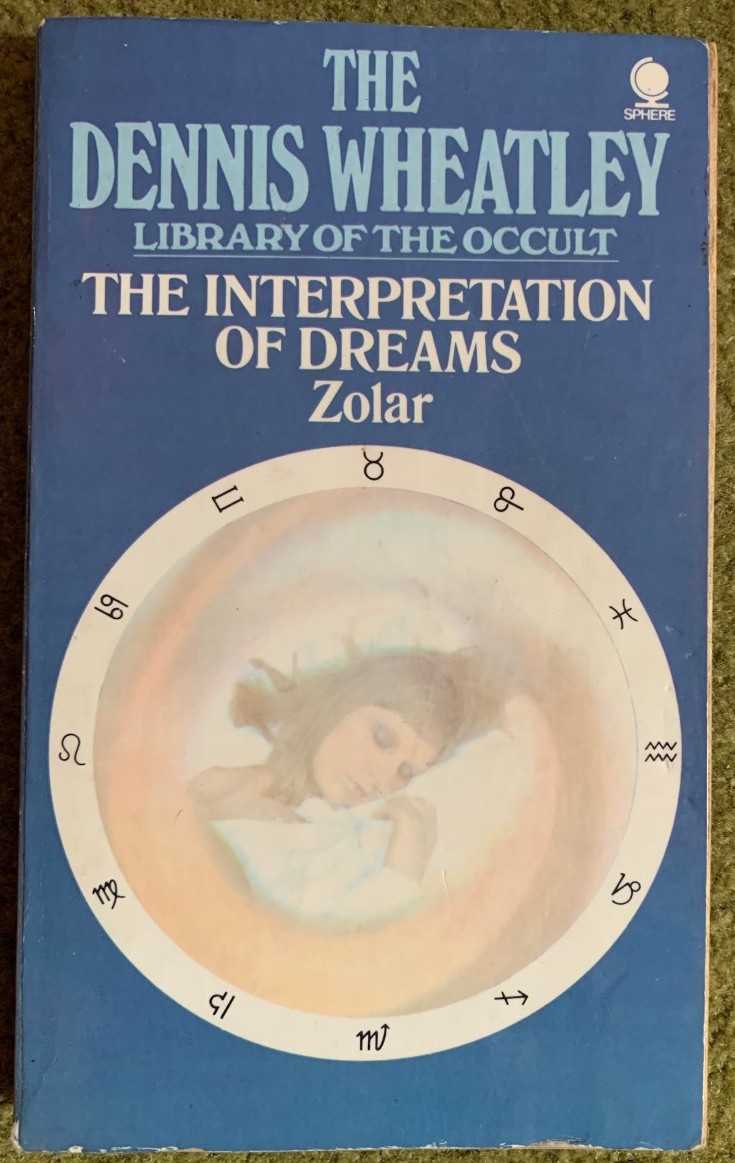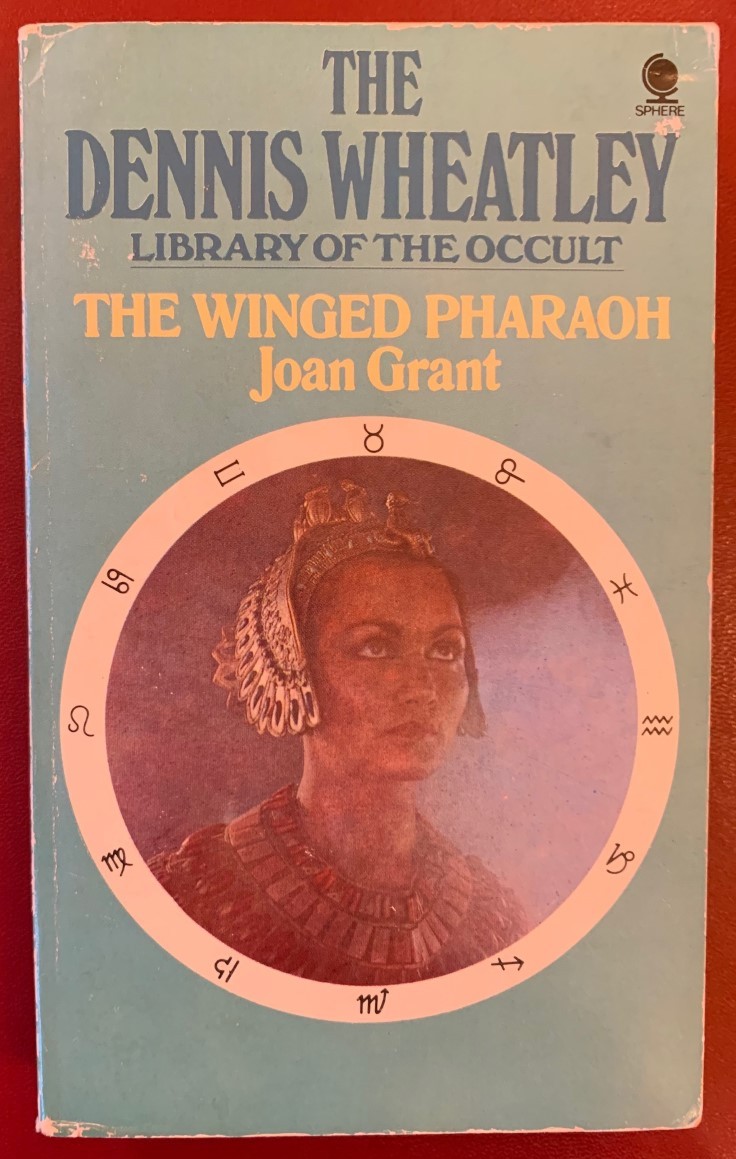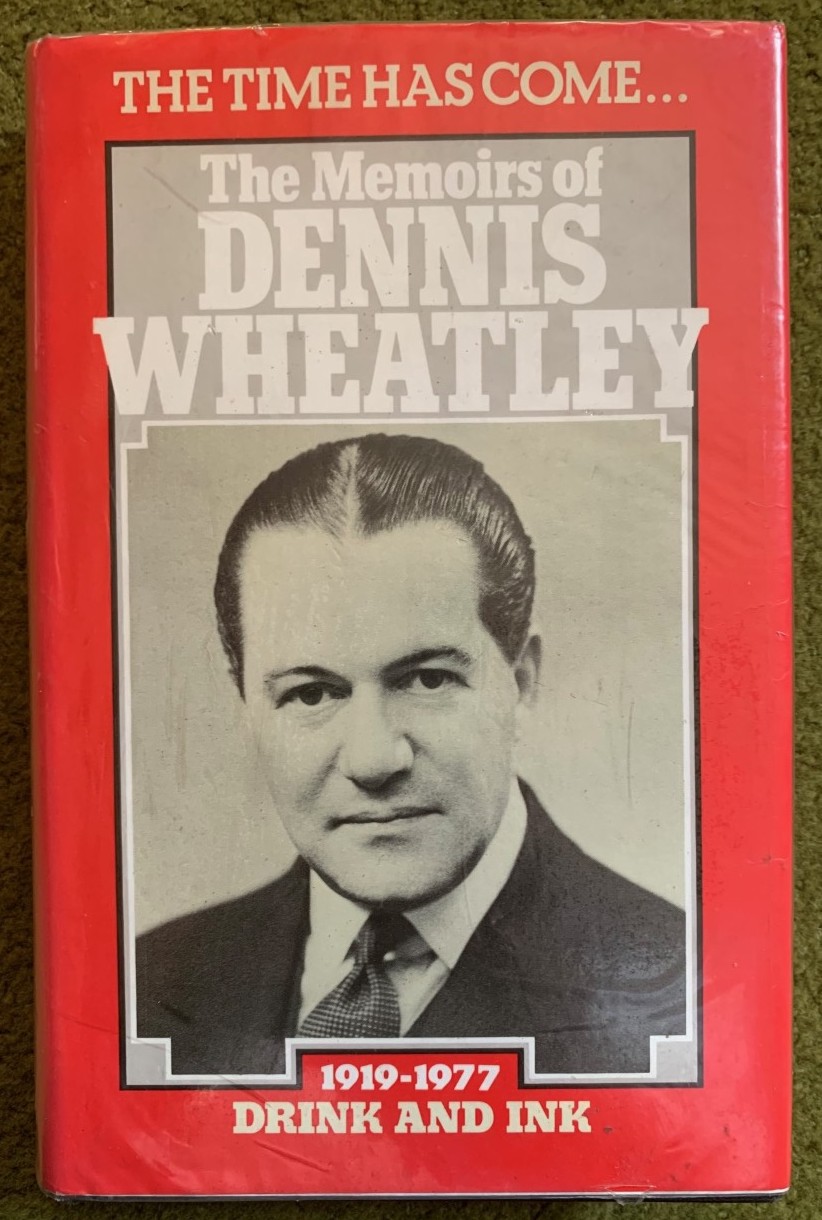
 |
Floor Plan |  |
The Dennis Wheatley 'Museum' - Champions of Reincarnation: Dennis Wheatley & Joan Grant
DW's references to Joan in his later publications
The Devil And All His Works (1971)
Click on the image to enlarge
'The Interpretation of Dreams by Zolar'
(1974)
'Winged Pharaoh' gets a mention
in DW's introduction
Click on the image to enlarge
For the full introduction, click here
'Winged Pharaoh' in
Dennis Wheatley's 'Library of the Occult'
(1974)
Click on the image to enlarge
For the full introduction, click here
'Drink and Ink'
Written by DW before his death,
but published in 1979
Click on the image to enlarge
The Devil And All His Works :
In 'The Devil And All His Works', the factual book that DW wrote in 1971, towards the end of his life, in the section on Ancient Egypt he wrote, after brief reference to the physical remains of its past glories:
'For those readers who desire a detailed picture, I would recommend Winged Pharaoh and other books by Joan Grant. They purport to be records of her own lives in Ancient Egypt, and they have such a ring of seeming veracity that I personally have no doubt at all that when she wrote them she was a true seer. The expression 'write' is not strictly correct; for, as my wife and I saw her do on many occasions, she used to lie on a sofa with closed eyes, in a self-induced semi-trance, and slowly describe what she saw while her husband took it down'
The Dennis Wheatley Library of the Occult :
As detailed elsewhere on this website, in conjunction with George Rainbird, the chairman of Sphere Books, DW launched a series of reprints of fictional and non-fictional works on the occult in 1974 under the banner 'The Dennis Wheatley Library of the Occult.
Some twenty four titles were published in the first year, and although hundreds of titles were envisaged, in the end only forty were published.
Number 18, 'The Interpretation of Dreams' by Zolar, was not by Joan Grant, but she received a mention in the introduction, where DW stressed the importance of setting down one's dreams as soon as one woke as part of the spiritual training. The source for this was one of the early chapters of 'Winged Pharaoh', 'First Days in the Temple'.
Dreams would seem to have been something of a popular topic of the time, because another dream classic was first published in 1927 and went through a number of reprints in the pre-war period. This was J.W.Dunne's 'An Experiment with Time', although the thesis of this was that dreams did not operate according to normal physical time, and had a predictive quality.
'Winged Pharaoh' itself was Number 18 in the series. DW's introduction began:
This book stands out beyond all others, for there is as much wisdom and light in it as in any sacred book of the East or West; yet it is also a human document of one person's pain and joy, love, sorrow and courage.
Much nonsense has been written about reincarnation but this book by Joan Grant of her life as a Pharaoh in ancient Egypt has such a ring of truth in it from beginning to end that it is impossible to believe that it is not true memory divinely granted.
Those who do not believe in reincarnation should think again. It was the basis of every great religion before the coming of the Jewish faith and is still so for nearly half the people in the world who practise a religion.
and towards the end he wrote:
I shall always count it an honour that I was able, in a small way, to contribute to the promotion of this, her first book. I happened to meet her at a party shortly before The Winged Pharaoh was due to be published and she sent me an advance copy.
To read the full introductions to both books, click on the links below :
DW's autobiography - Drink and Ink :
The final parts were written before DW's death in 1977, although they were only published in 1979. In them, DW casts no aspersions on either Joan Grant's earlier or later work, but he does reflect:
'Joan always dictated her books while in a semi-trance. Winged Pharaoh was taken down by Leslie Grant, who was a barrister, and it is generally admitted to be her best. Of the others Life as Carola and Return to Elysium are very good. But Charles, who took down all her later books, although a man of the utmost integrity, was so obsessed with traditional occult symbols and ceremonies that, in my view, his influence caused a decline in her direct communication with the Powers of Light.'
It seems therefore that to at least some extent he shared Jean Overton Fuller's view that some of her later works were not as 'good' as the earlier ones. Neither DW nor Overton Fuller seems to have had any doubts that the earlier ones were 'true'.
References : The Devil and All His Works, p98.
Drink and Ink pp 152-4,161,212,216.
Provenance: Private collections





